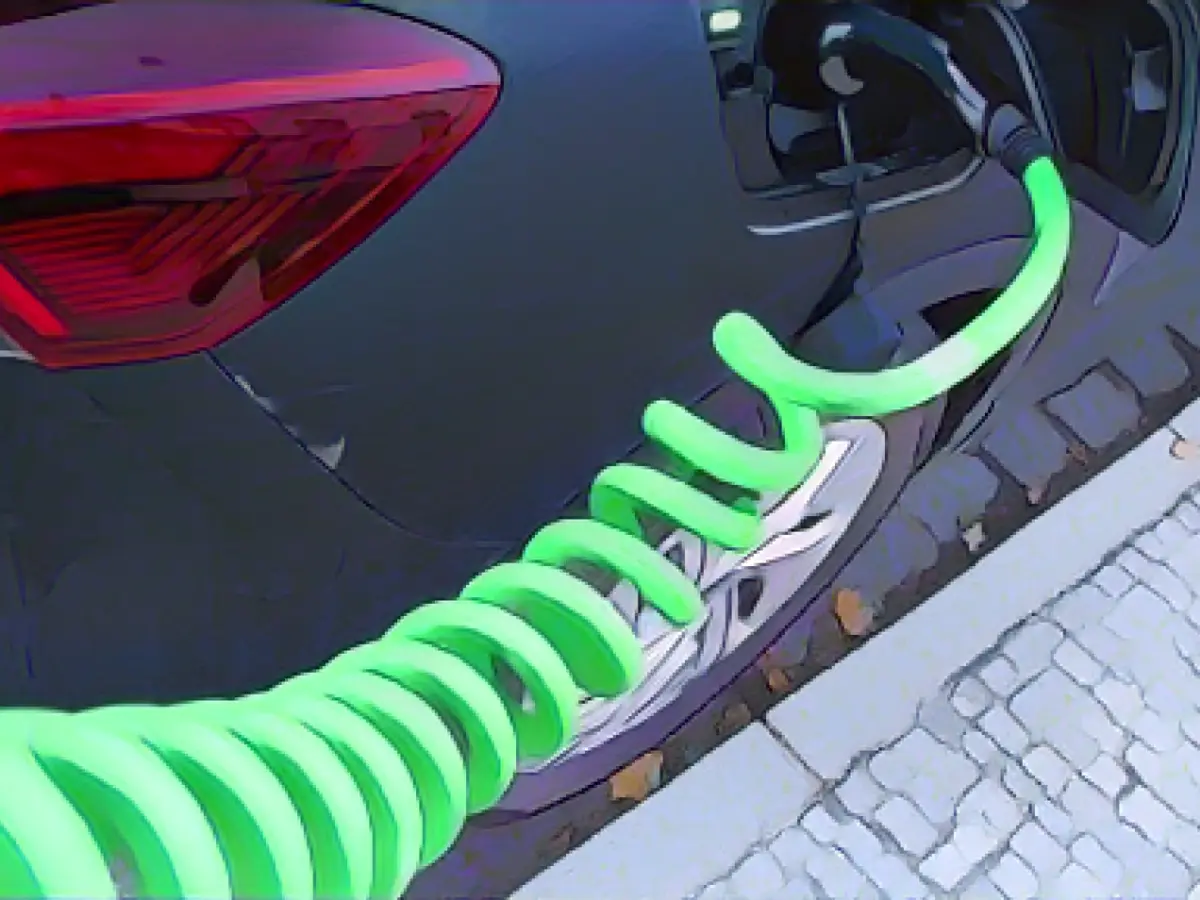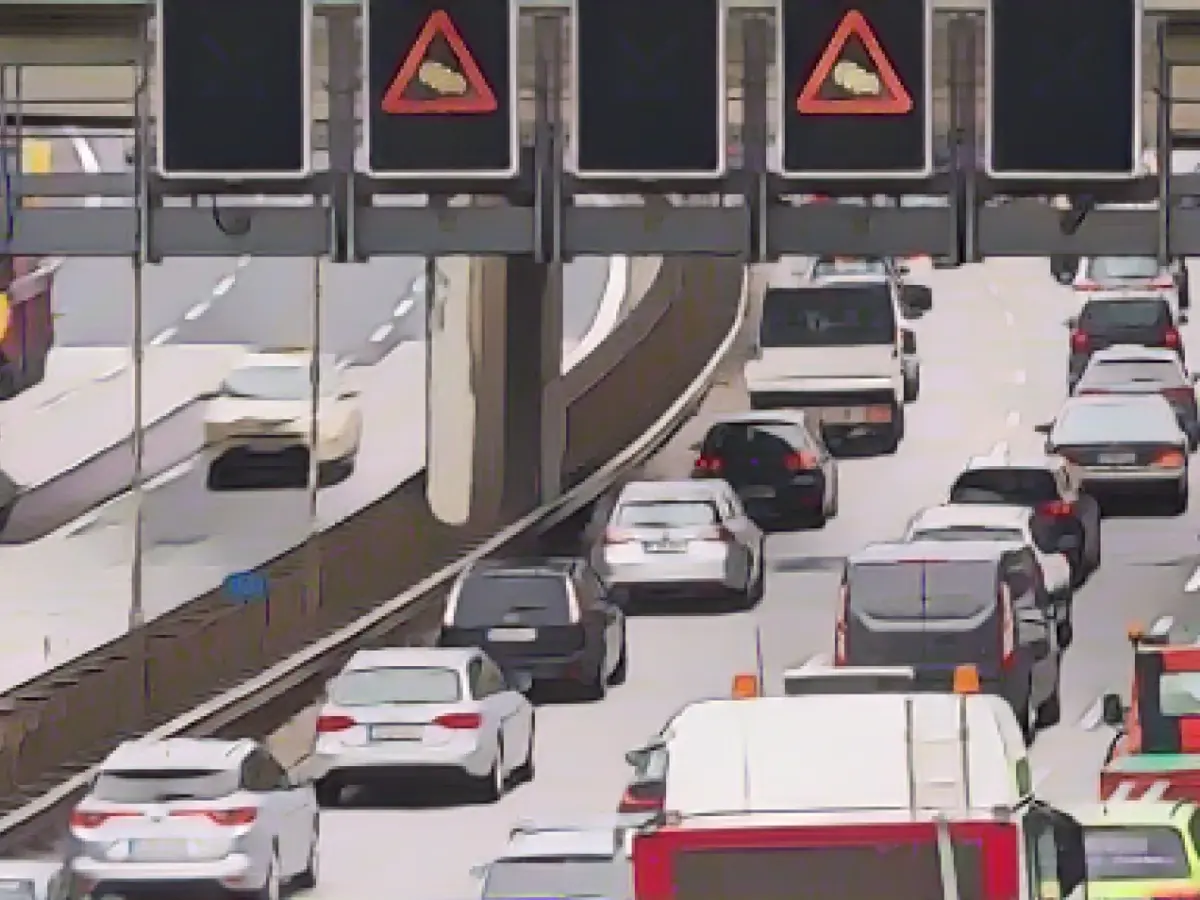Cutting the Cord: An Unexpected End to E-Car Incentives
The German government pulled the plug on planned e-car incentives unexpectedly, ending the state purchase bonus for electric vehicles and nixing the environmental bonus this past weekend. The announcement came from the Ministry of Economic Affairs and Climate Protection in Berlin, effectively putting a halt to new applications for the environmental bonus starting December 17, 2023. Approved grants remain unaffected, and applications submitted earlier will be processed in the order in which they were received.
The move comes as a result of an agreement reached by the SPD, Greens, and FDP parties in the traffic light coalition, addressing billions in budget gaps following the Federal Constitutional Court's ruling. The core budget and the Climate and Transformation Fund — used to finance e-car subsidies— are affected. Initially, the e-car subsidy was slated to expire at the end of 2024, with the possibility of an earlier end if funds ran out.
The Fallout
Consumer associations welcomed the premature end to purchase premiums in principle. However, they voiced concerns about ensuring those who had ordered e-vehicles in reliance on the subsidy would still receive their bonus. To address this issue, the federal government should make the date of purchase the decisive factor, prioritizing those who had already ordered their e-vehicles.
ADAC also criticized the method of only committing to the subsidy at registration instead of at the time of purchase. Consumers who had ordered e-vehicles and were unable to register them before December 17 were particularly affected, as they had factored in the environmental bonus.
The Call for Transition
The SPD parliamentary group supports the early expiry of the subsidy but cautions against any sudden transition. They point out that citizens expect realistic transition periods from political decision-makers and that consumers need ample time to plan vehicle purchases. The temporary halt on the subsidy announcement was met with disappointment from the SPD parliamentary group leaders, who emphasized the need for a more orderly transition.
The German Association of the Motor Trade (ZDK) also criticized the abrupt end to the subsidy. They urged the federal government to allow registrations to be made until December 31, 2023, ensuring those relying on the subsidy could register their e-vehicles before it expired.
The Financial Constraints
Ministry circles argued that the funds for 2023 were exhausted, necessitating the quick end to the subsidy. Around 1,400 applications for review are received daily, with an average grant of 4,000 euros. Each additional day of applications could cost the taxpayer around 5.6 million euros.
The Anticipated Impact
Transport policy spokesperson Thomas Bareiß fears that the end of funding will cause the already sluggish sales figures for e-cars to plummet, with many opting for combustion-engine vehicles instead. The move may mark the end of the German government's goals for the transport transition.
The lack of subsidies might also put a strain on the German automotive industry and its more than 700,000 employees. An industry expert predicts a decline of up to 200,000 electric car sales in Germany in 2024 as a result.
Enrichment Insights
- Industry Perspective: The sudden end to the subsidies disrupted plans in the automobile industry, causing uncertainty and concern about Germany's role as an industrial hub. Industry leaders called for improved policies and support to maintain Germany's competitiveness.
- Consumer Impact: The lack of subsidies has led to a decline in EV sales, largely due to the withdrawal of government incentives. Manufacturers have responded by offering discounts on electric vehicles to maintain demand.
- Political Debates: The SPD and Green party advocate for maintaining the ban on registering internal combustion engine cars from 2035, implementing tax cuts for domestically manufactured EVs, and prioritizing EV adoption. Opposing parties like the CDU and AfD advocate for "technology openness" and the possibility of eFuels providing a viable alternative to EVs.
- Future Prospects: Despite the challenges, there's growing optimism about the future of EVs in Germany. Changing attitudes and the availability of more affordable EV models are expected to boost EV adoption in 2025. However, manufacturers face losses due to EU emissions limits and the requirement to sell more EVs.








